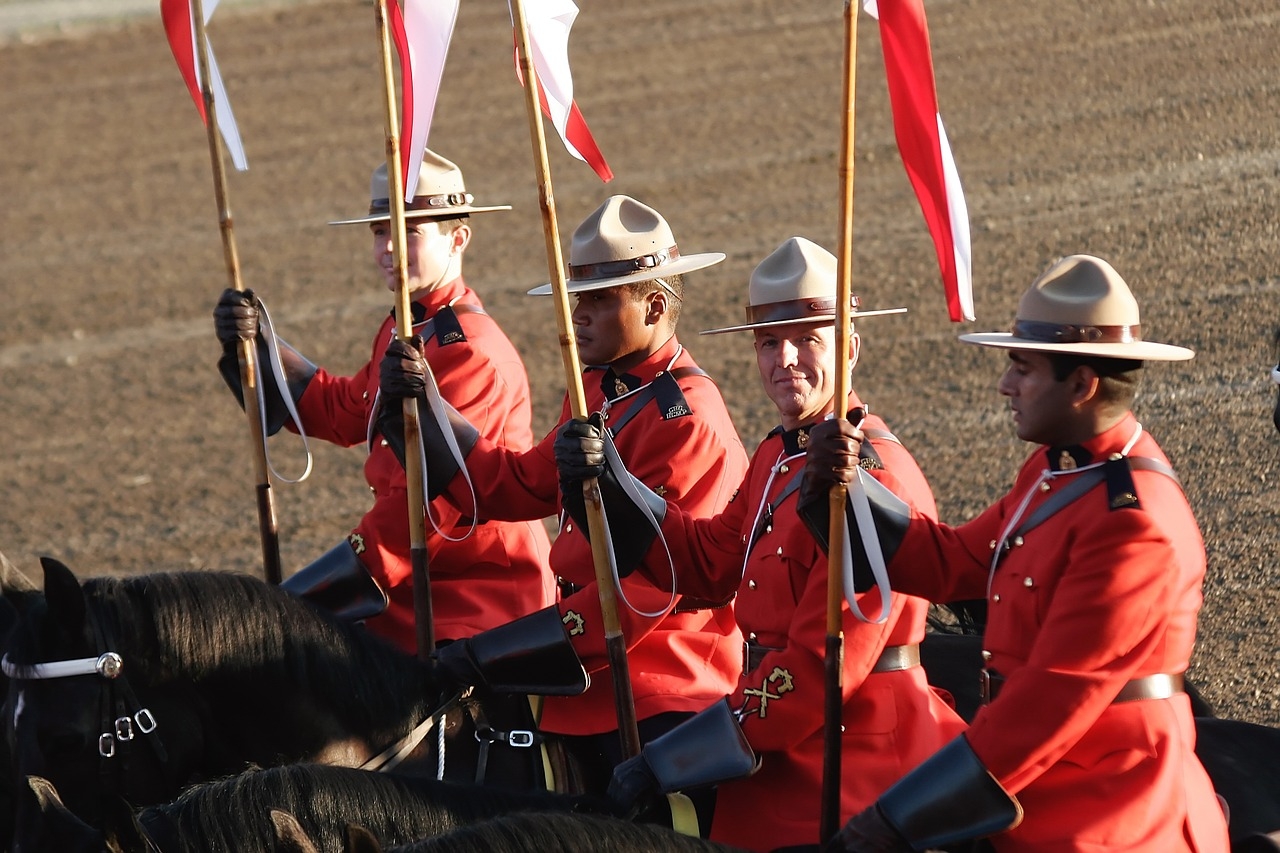
Why the NDP have a moral obligation to demand changes to the RCMP Act
As a criminologist who has written extensively about the need to reform the Royal Canadian Mounted Police (RCMP). I often receive correspondence from present and former members of the RCMP. Recently, I received an email from an individual that clearly articulates a major problem with the RCMP Act and how it is negatively impacting on present and former employees within the RCMP. The person who sent it to me has authorized its publication but because of the retaliatory history of the way the RCMP deals with its employees they have requested that it be published anonymously.
Later this month, the RCMP will be embarking on celebrations to mark their 150th anniversary as Canada’s national police service. In light of this fact, I feel that Canadians should read the article below that I received which clearly reveals that despite all the pomp and circumstance you may hear or read about in the coming weeks, our national police service, the Royal Canadian Mounted Police, has ‘absolutely nothing’ to celebrate.
Darryl T Davies, professor of criminology and criminal justice, Carleton University.
RECLAIMING THE RCMP'S DIGNITY: WHY THE NDP HAVE A MORAL OBLIGATION TO DEMAND CHANGES TO THE RCMP ACT
On June 3, 2013, then RCMP Commissioner Bob Paulson went before the Senate Committee on National Security and Defence, first admonishing three RCMP whistleblowers but then demanding to be given the tools he claimed were necessary to rid the RCMP of “bad apples.” What Paulson did not tell Canadians, however, was who exactly in the RCMP he considered to be the bad apples.
With the support of the Liberals but opposed by the NDP, the Harper Conservatives pushed through the changes to the RCMP Act which came into force on November 28, 2014. Much debate occurred within Ottawa and the RCMP regarding the new changes: Were they going to root out harassment? Were there any national security implications? Was the RCMP Commissioner given too much power? Led by NDP Public Safety Critic, Randall Garrison, and MPPAC President, Rae Banwarie, public concern was expressed due to the consolidation of power in the office of the RCMP Commissioner and the decentralization of conduct investigative power to local RCMP commanders.
For an uninvolved observer, the pursuit of changes to the RCMP Act always seemed like an act of desperation; one final attempt to restore the pride and reverence to a national icon. Something had to be done, anything, details be damned. Federal politicians rattled by years of scandal and allegations of sexual harassment in the RCMP couldn’t idly sit by and do nothing. They put their trust in Paulson, a Commissioner with his own checkered history of conduct in the RCMP, to champion a way forward for the beleaguered organization. Five years later, we can now clearly see that the changes ushered in by the Liberals and Conservatives have proven to be nothing short of an unbridled disaster for the RCMP and Canada.
2385 and counting. That is the number of conduct-related files opened by RCMP commanders against their own employees since the RCMP Act changes came into effect. 2385! For an organization always clamouring for more members or claiming a lack of resources, they sure seem to find the time, resources and wherewithal to target and investigate their own employees. These numbers only tell part of the story as the powers granted to Paulson were not only used to target the “bad apples,” they were also used to target the whistleblowers, harassed, belittled, mobbed, medically restricted and probationary members. These were some of the very members Paulson derided when addressing RCMP employees at an Edmonton Town Hall on April 9, 2013. Maybe to Paulson, these were the bad apples.
The new RCMP Act was Paulson’s legacy project and this legacy has served to be the final phase in the total deconstruction of the RCMP. Recruitment is down, standards have been lowered, vacancy rates pile up, wages are stagnant, major investigations end in ignominy and a foreign service-revealed security breach has called into question Canada’s reliability as a 5-Eyes partner. All the while, RCMP managers have found the time to target employees with conduct investigation after conduct investigation. Professional Standards Units, once populated with well-meaning individuals committed to the thankless pursuit of police accountability, have now become a haven for career-driven people seeking career advancement or promotions for doing the bidding of local RCMP commanders by investigating targeted employees. How Liberal or Conservative policy experts could not foresee this outcome is beyond comprehension. Almost any way you look at it, the deconstruction taking place everyday at the RCMP was the only logical outcome of giving Paulson and other RCMP commanders the power they so desperately coveted. And wait a second. Why would you go to the people who’ve benefited most from the status quo (RCMP managers) to change the status quo? What sense did that make?
The demise of the RCMP has long been predicted with most speculating that some Earth-shattering scandal would finally lead to dissolution. What no one predicted was that the demise of the RCMP would come in the form of small cuts, in this case 2385 of them and counting. The fear that rank and file RCMP members have of their management must be palpable, knowing that their careers or very livelihoods could be at risk if they speak out or otherwise not conform with the vision of management. The voice of dissent is gone and the lifeblood of the Force has gone with it.
One must wonder if there is any way to save the RCMP from itself or the Liberal Government from its horrible gamble of putting its faith in Paulson. Yes, Honourable Judy Sgro, we remember. Seismic changes take too long and will do nothing for the countless RCMP members being drummed out on a near daily basis by a management group bent on reshaping the RCMP workplace to comport with their vision. The members currently being forced out were not responsible for the harassment crisis, the guise for the needed changes in the first place. In fact, many of the members currently being forced out were on the receiving end of that harassment. As for the harassers, they’ve mostly retired with full Federal Government benefits. An Orwellian ending in the service to Canada.
The only thing that can save the RCMP at this 11th hour is Jagmeet Singh and his NDP caucus. Yes, that is correct. Only the current NDP caucus can save RCMP management from themselves.
With the current minority Parliament, Singh and the NDP have been presented with a generational opportunity to heed the warning of their caucus 6 years ago and demand that the Liberals implement the changes necessary to remove from the RCMP Act its most crippling elements. In the furor of debates, hearings and crafting of the new RCMP Act, RCMP management quietly ensured the removal of section 45.17 of the RCMP Act, the section which stayed the implementation of any decision to discharge a member until the resolution of all appeals and reviews. The removal of this specific section had the effect of removing members from their pay and, with conduct matters and medical cases decentralized, leaving employees at the mercy of the whims of local RCMP commanders. This cannot be the outcome the Government envisioned when it oversaw the “modernization” of the RCMP Act.
One might believe that once discharged, an RCMP member should no longer be entitled to his or her pay. Most every other police officer in Canada does not remain on the payroll once discharged. However, RCMP members have no union representing their interests or a collective bargaining agreement establishing clear, expedited timelines for the resolution of appeals. It is not uncommon for an RCMP grievance or appeal to languish in bureaucratic purgatory for as long as a decade. It is almost as if RCMP managers knew of this outcome when they demanded their “new tools.” Inarguably, the most compelling reason for reinstating section 45.17 is the fact that, unlike every other employee in Canada, RCMP members do not have a contractual relationship with their employer. They are appointed by statute. As such, again unlike every other employee in Canada, RCMP members cannot sue their employer for constructive dismissal. The net outcome of this reality is that RCMP management can fundamentally change their employees’ working conditions without fear of judicial consequence. In this bureaucratic quagmire, the only body that should hold the power to decide whether or not an RCMP member remains on the payroll is the Federal Court of Canada.
So back to Mr. Singh and the NDP caucus. In this minority Parliament, you have the generational opportunity to honour your caucus members circa. 2013 by aiding the Liberals in undoing the horrific mistake of placing RCMP members almost pathetically at the mercy of their management. One simple alteration; reinstate a section of the RCMP Act that was law for 29 years and, in the process, take away from power-drunk RCMP managers their deadliest weapon. Since coming into force, the RCMP Act has been amended four times. It’s long overdue that it be amended a fifth time.
Published anonymously
COMMENTARY
Instead of centralizing power within the Commissioner's office the fundamental question that should be asked is how many of those conduct related files that were opened involved senior management of the RCMP? If we have learned anything its that the problems within the RCMP stemmed from a dysfunctional management structure where managers were corrupted by the excess of power and employees by the lack of it. Instead of setting up a fair procedure governed by the principle of due process the RCMP simply consolidated the power to adjudicate disciplinary cases in such a fashion that employees had little recourse to any semblance of justice.
Senior managers in the RCMP were literally walking on water and the new provision simply insulated them from being accountable for the abusive manner in which they were treating their employees. It was not just the flagrant way in which they investigated cases it was their complete failure to ensure that there was openness, transparency and a process for appeals to an outside, impartial and independent body that could make decisions based not on bias and prejudice but on justice. The Neanderthal principle that RCMP members cannot criticize their organization without fear of reprisal is central to the tyrannical way in which the organization was being run out of the Commissioner's office.
Members of the rank and file found themselves in situations where promotions were not governed by merit but rather the length of the individual’s nose. Decisions were taken against members that in any court of law would have been overturned as gross violations of a members right to defend themselves. So, what can be done?
First, what is required is the establishment of an Inspector General’s office that is at arms length from the RCMP. This body should have quasi judicial powers to compel witnesses to testify, conduct investigations and make binding decisions that are not based on the power of the Commissioners office and his/her toadies but the rule of law.
Second, the Commissioner of the RCMP should report directly to parliament and ‘not’ to a Minister of Public Safety to ensure there is no perception of political interference in the operation of the RCMP. Given the dynamics of the new parliament the NDP have an opportunity to do what they couldn’t do when they didn’t hold the balance of power. How well they stickhandle these changes with the Trudeau government will be a measure of the NDP’s credibility and commitment to reforming the RCMP.
Darryl T Davies, professor of criminology and criminal justice, Department of Sociology and Anthropology, Carleton University.






